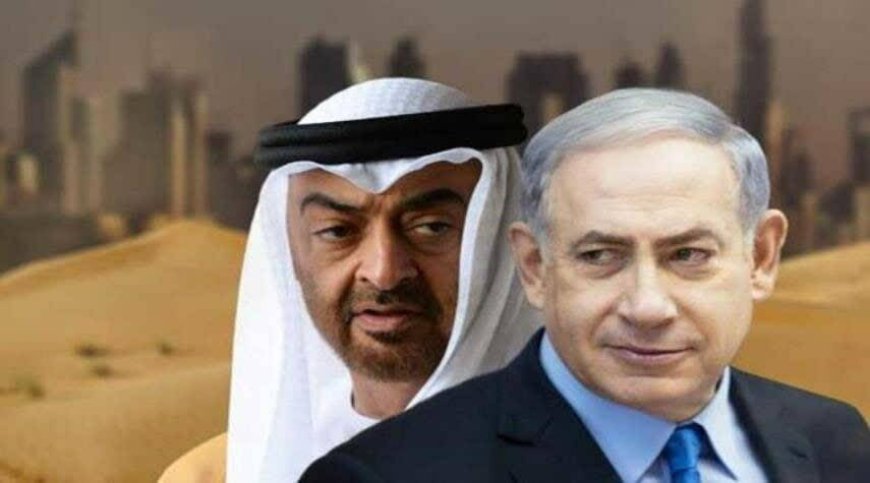Sacrificing Palestinian Hopes: Decoding the UAE's Sinister Ambitions in Post-War Gaza

By: M. S. Qorbani
In recent days, the United Arab Emirates (UAE) has expedited its strategic maneuvers in the Gaza Strip following the cessation of hostilities, actively conspiring against the Chinese government and seeking to displace the Hamas movement from its administrative hold. Abu Dhabi is engaging in covert dialogue with factions opposing Hamas to secure dominance over the Gaza Strip's administration.
In collaboration with Mohammad Dahlan, a dissident leader of the Fatah movement, the UAE is devising a new administrative framework for the Gaza Strip, using humanitarian aid as a pretext to assert its influence. Brigadier General Ghassan Alian, Israel's coordinator for activities in the occupied territories, has visited the UAE four times since the onset of the conflict, holding discussions with Dahlan and Emirati officials.
A pivotal meeting in Bahrain at the end of June brought together military officials from the Israeli regime and representatives from five Arab countries: Bahrain, the United Arab Emirates, Saudi Arabia, Jordan, and Egypt. The so-called peacekeeping force and Arab country representatives conditioned their involvement on the establishment of an international framework and the complete withdrawal of Israeli military forces from the Gaza Strip.
The UAE has become the first Arab country to announce the potential deployment of ground troops in Gaza, coinciding with broader Arab and Western efforts to formulate a post-war strategy for the region. The United States is attempting to galvanize Arab countries into contributing to a multinational force in Gaza as part of its ongoing efforts, now in their tenth month. However, the specifics of this force, including its military or police nature, remain unresolved.
The Zionist Prime Minister Benjamin Netanyahu seeks to involve the UAE in post-war plans for Gaza, urging the Emiratis to send troops and finance the reconstruction and overhaul of Gaza's education system to "de-radicalize" the population. Yet, Netanyahu is reluctant to cease hostilities or recognize any official role for the Palestinian Authority in Gaza, and he remains opposed to resuming the political process based on a two-state solution.
On July 18, a clandestine meeting in Abu Dhabi brought together the United States, Israel, and the UAE to discuss the "day after" scenario for Gaza. Hosted by UAE Foreign Minister Abdullah bin Zayed, the meeting included Brett McGurk, a senior adviser to President Biden on Middle East affairs, and Tom Sullivan from the State Department. Representing Israel were Ron Dermer, Minister of Strategic Affairs and Netanyahu's confidant, and two senior military officials working on Israel's proposals for Gaza's future.
Prior to the Israelis' arrival, the UAE outlined its post-war proposals in an article by bin Zayed's special envoy, Lana Nusseibeh. The UAE stipulated several conditions for its participation in an international force:
1. The international force must be invited by the Palestinian Authority.
2. The Palestinian Authority must undergo significant reforms and be led by a new, strong, independent prime minister.
3. The Israeli cabinet must allow the Palestinian Authority to participate in Gaza's administration and agree to a political process based on a two-state solution.
4. The United States must lead any "day after" initiative.
The UAE's stance continues its recent policies: opposing Islamist movements like Hamas, expanding its presence in the Middle East, and strengthening ties with the Israeli regime, especially since normalizing relations in 2020. With a robust humanitarian presence in Gaza and the West Bank, the UAE aims to eclipse Qatar as the most influential Arab country in Palestine. By reforming the Palestinian Authority and installing its own candidate as Prime Minister, Abu Dhabi seeks to unify the West Bank and Gaza under one government, aligning with Israeli interests to demilitarize Gaza, thereby advancing the agendas of the US and Israel and securing a pivotal role in the future of these territories.
However, the UAE faces formidable challenges. Many Palestinians view the UAE as a traitor, complicit in the Israeli atrocities, rendering Abu Dhabi's ambitions fraught with difficulty and skepticism.













































